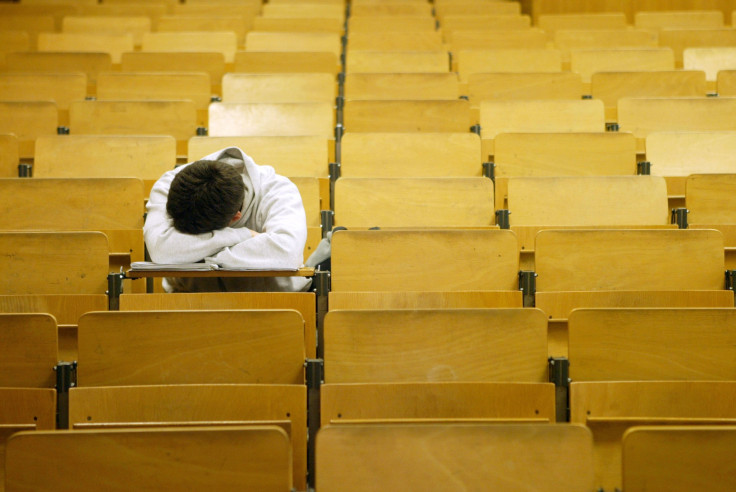Sleep Deprivation Affects Some Regions Of The Brain More Than Others, New Study Finds

A new study has shown that sleep deprivation affects some parts of the brain more than the others. For example, regions dealing with problem solving and concentration experience a slow down while others continue work as usual.
The study published Friday in the journal Science looked at the brain’s response to a shortage of sleep and the two major factors that influence when one sleeps — the body’s circadian clock that has a cycle of about 24 hours, and the body’s need to sleep, increasing as one stays up longer.
“We’ve shown what shift workers already know,” said the study’s co-author Derk-Jan Dijk of the University of Surrey, England, according to Science News. “Being awake at 6 a.m. after a night of no sleep, it isn’t easy. But what wasn’t known was the remarkably different response of these brain areas.”
The team at the University of Liege in Belgium assessed 33 young adults who went without sleep for 42 hours. The subjects were made to perform simple tasks testing reaction time and memory over this period to assess their cognitive function.
During the sleepless period, 12 brain scans were taken of the subjects, while measuring their levels of the sleep hormone melatonin, to track their master circadian clocks. After 12 hours of recovery sleep, another scan of the brain was taken.
While the circadian clock was the primary factor in the functioning of certain areas like the thalamus, areas in the brain’s outer layer were affected more by the body’s need for sleep. As the period of sleeplessness increased, activities carried out by this region became more sluggish.
The brain’s circadian clock signal originates in a cluster of nerve cells — the suprachiasmatic nucleus — but the root of the drive to sleep remains unclear, according to Charles Czeisler, a sleep expert at Harvard Medical School. Explanations include the buildup of toxic metabolites after a day’s brain activity, or certain regions running out of fuel.
Czeisler believes that the study “opens up a new era in our understanding of sleep-wake neurobiology.” It may have varied uses — assessing how a lack of sleep during the teenage years influences brain development or tests that reflect the strength of the body’s sleep drive — in the future.
© Copyright IBTimes 2024. All rights reserved.






















